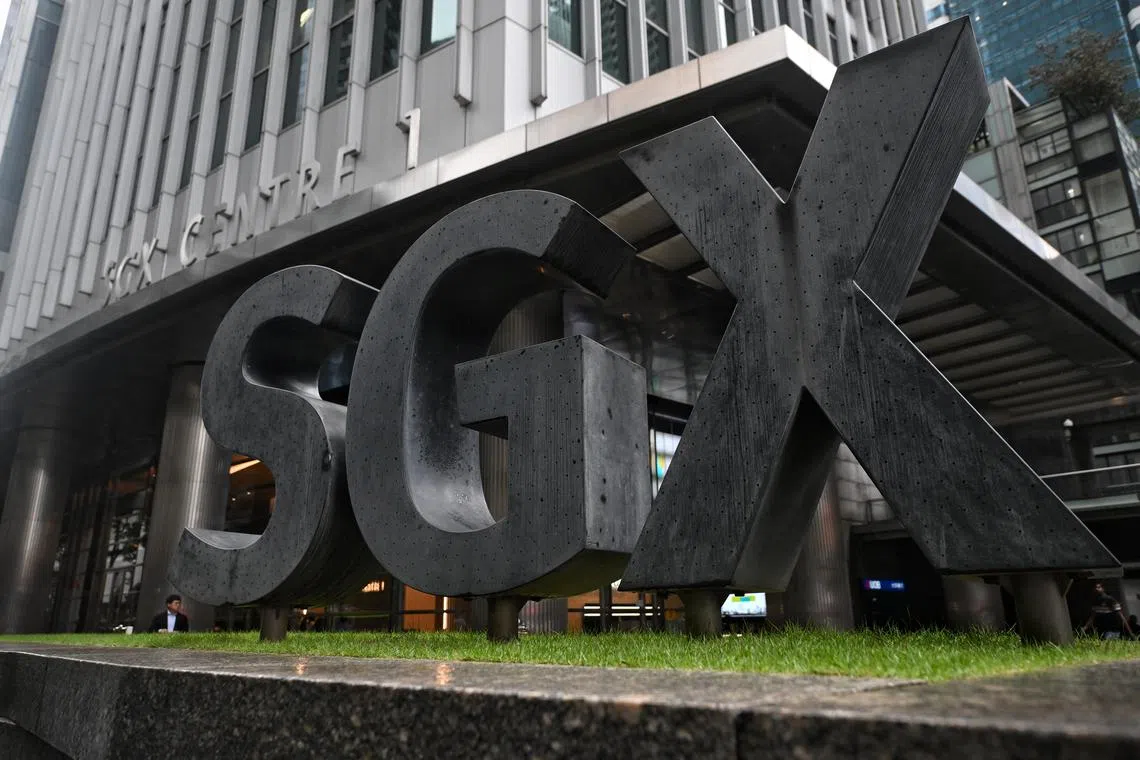Singapore stocks flat amid cautious trading on inflation concerns
Sign up now: Get ST's newsletters delivered to your inbox

Gainers outnumbered losers 273 to 255, after 1.2 billion securities worth $815.1 million changed hands.
PHOTO: ST FILE
SINGAPORE - Local shares closed largely flat on Wednesday after wary local investors kept their powder dry ahead of United States inflation data.
The safety-first mood sent the Straits Times Index (STI) down 0.02 per cent, or 0.66 points, to 3,242.29. In the broader market, gainers outnumbered losers 273 to 255, with 1.2 billion shares worth $815.1 million changing hands.
Mr Stephen Innes of SPI Asset Management said markets have shown a relatively benign response to regional banking woes in the US, which gives the Federal Reserve less cause for concern. “But with cuts already priced into the back end of 2023, it’s unlikely a softer (inflation number) will lead to more near-term rate cuts.”
Regional markets were largely in the red, tracking overnight losses on Wall Street, where the S&P 500 closed 0.5 per cent lower, the Nasdaq fell 0.6 per cent and the Dow Jones slipped 0.2 per cent.
The Nikkei 225 in Tokyo lost 0.4 per cent, Hong Kong’s Hang Seng Index slipped 0.5 per cent, Malaysian stocks shed 0.5 per cent and the Kospi Composite in Seoul declined 0.6 per cent.
Australian shares dipped 0.1 per cent after the nation’s big-spending budget sparked fears that interest rates will stay higher for longer.
The top gainer on the STI here was Sembcorp Industries, which gained 1.5 per cent to $4.66. Its shares hit an eight-year high on Wednesday, after the group said there was no definitive deal to sell its waste-management unit.
The STI’s top decliner was Yangzijiang Shipbuilding, which fell 1.6 per cent to $1.22.
Local banks traded mixed. DBS Bank fell 0.3 per cent to $31.62 and UOB lost 0.2 per cent to $28.12. OCBC Bank rose 0.6 per cent to $12.32 after posting a record net profit of $1.88 billion for the first quarter ended March 31, up 39 per cent year on year. THE BUSINESS TIMES


